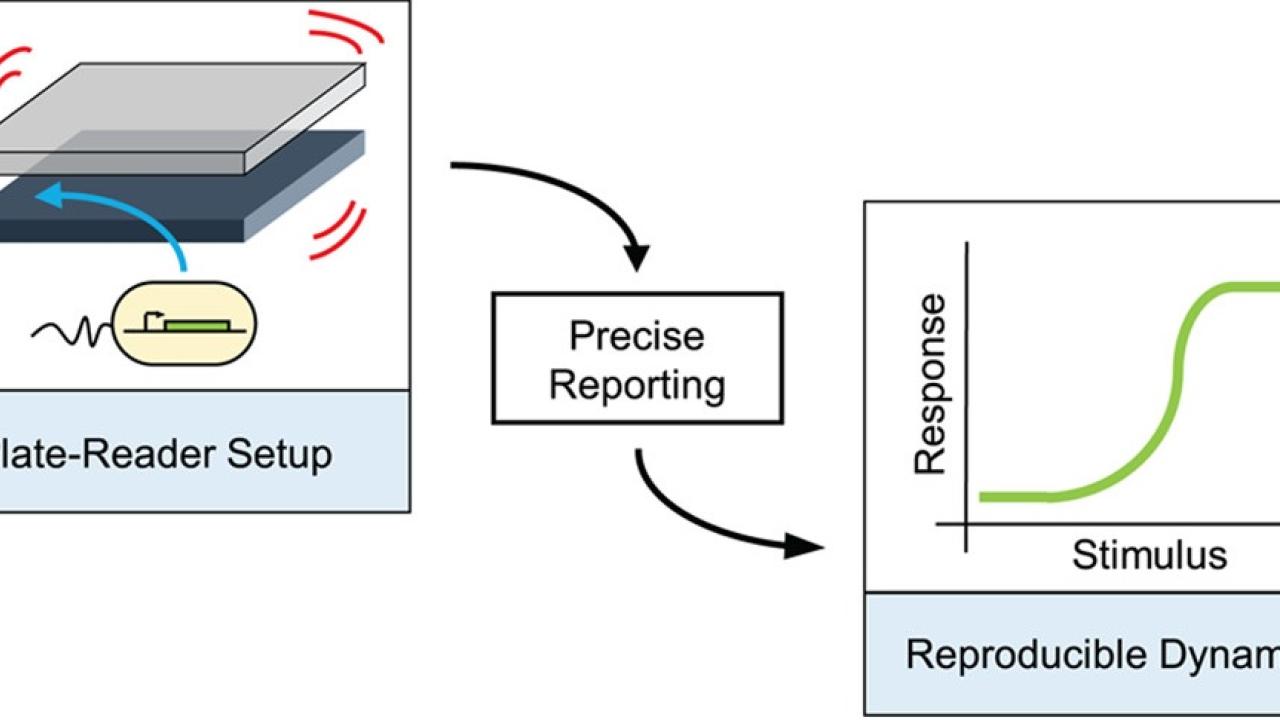
First Author of Synthetic Biology Paper is a Tan Lab Undergraduate
Michael Chavez, a senior in the Tan Lab, is the first author of a new paper in ACS Synthetic Biology, “Reproducibility of High-Throughput Plate-Reader Experiments in Synthetic Biology.” Chavez, the Biomedical Engineering Department’s 2016 Undergraduate Research Award recipient, co-authored the paper with Jonathan Ho and Cheemeng Tan.
The field of synthetic biology has relied heavily on high-throughput methods, especially plate-readers, for quantification of new biological components. Plate-readers incubate and track many low volume cultures simultaneously, creating larger and more quantitative data sets then traditional culture methods. Despite the ubiquitous use of plate-readers in nearly every publication in synthetic biology, the reporting of the associated protocols remains poor. This lack of protocol reporting and plate-reader assay standardization has drastic, wide-spread effects on the reproducibility of experiments in the field of synthetic biology, contradicting the original goals of the field. The poor reporting of plate-reader assays in synthetic biology presents a stark contrast to the consistent reporting of culture conditions in biology. With the current focus of the NIH on reproducibility of experiments, the reporting of plate-reader assays in synthetic biology needs significant cultural changes.
Tan’s group revealed that ~70% of existing papers do not report the settings of plate-reader assays. Furthermore, those who did report the settings often use fundamentally different ones than others in their field. They then demonstrated the impact of these settings on bacterial growth, gene expression, biofilm formation, response to antibiotics, and performance of synthetic DNA promoters. Their results show that without consistent, accurate reporting and standardization of plate-reader protocols, reproducibility will likely remain low in high-throughput experiments using plate-readers. The work also provides data for the setup of plate-reader protocols for synthetic biology and antibiotic experiments.
“As an engineer working the field of synthetic biology, I find it extremely important that synthetic biological parts work in a predictable and reproducible way. In this way, synthetic biological systems can be engineered a priori like an electrical engineer would design a circuit or a civil engineer would design a building,” said Chavez.
Senior author Cheemeng Tan added, “Our work demonstrates that to achieve a priori design of synthetic biology, the field needs to focus on the environment we impose on the system as much as we focus on its design. My hope is that this paper can be used to create a set of standards that synthetic biologists use in creating and testing new systems.”
